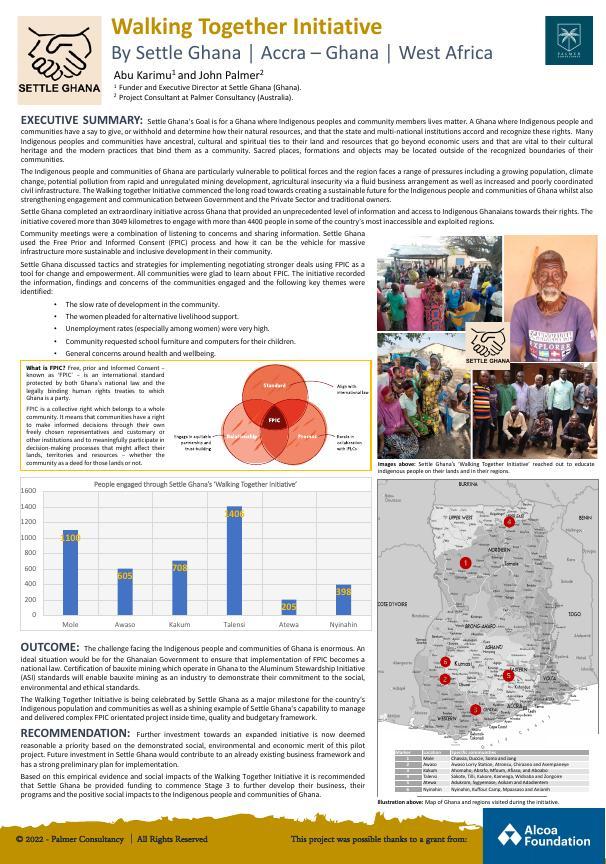Case Study: Settle Ghana – Walking Together Initiative
In 2022, Settle Ghana completed an extraordinary initiative across Ghana that provided an unprecedented level of information and access to Indigenous Ghanaians towards their rights.
30 June 2022

Stage 1 – Walking Together Initiative (June 2022)
In 2022, Settle Ghana completed an extraordinary initiative across Ghana that provided an unprecedented level of information and access to Indigenous Ghanaians towards their rights. The initiative covered more than 3049 kilometres to engage with more than 4400 people in some of the country’s most inaccessible and exploited regions.
Community meetings were a combination of listening to concerns and sharing information. Settle Ghana used the Free Prior and Informed Consent (FPIC) process and how it can be the vehicle for massive infrastructure more sustainable and inclusive development in their community.
Settle Ghana discussed tactics and strategies for implementing negotiating stronger deals using FPIC as a tool for change and empowerment. All communities were glad to learn about FPIC.
The initiative recorded the information, findings and concerns of the communities engaged and the following key themes were identified:
- The slow rate of development in the community.
- The women pleaded for alternative livelihood support.
- Unemployment rates (especially among women) were very high.
- Community requested school furniture and computers for their children.
- General concerns around health and wellbeing.
Stage 2 – Walking Together Initiative (March 2023)
The Stage 2 of the Walking together Initiative operated by Settle Ghana specifically continued to build on a targeted, nation-wide program that worked with a diverse group of Indigenous Ghanaians all across Ghana.
For a relatively small organisation, Settle Ghana was able to use existing network and experiences with indigenous communities to engage first with Community Chiefs Elders and Religious Leaders and later with communities.
The micro-projects implemented in Stage 2 have created economic opportunities in remote locations while also creating social value. The program has delivered several additional out of-scope items, such as school furniture, education books, solar-powered streetlights, marketing short-information videos, and IT computer equipment. The final results of the program have been impressive, engaging over 4400 people across six regions in Ghana.
RELATED TOPICS:
SHARE THIS ARTICLE


